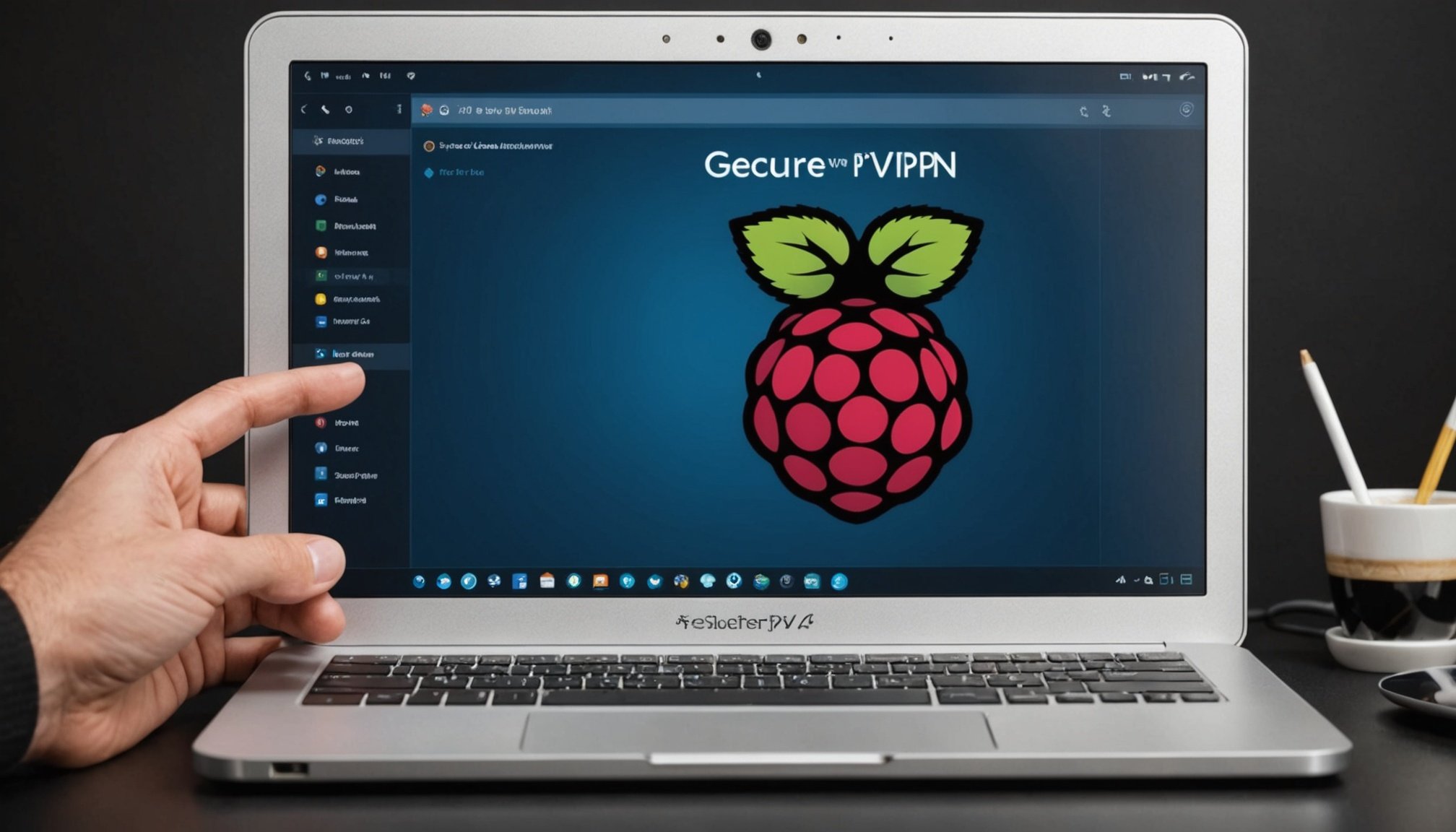Overview of VPN and Its Importance
Virtual Private Networks (VPNs) are essential tools in modern digital communication, primarily serving to secure internet connections and protect sensitive data. At its core, a VPN creates an encrypted tunnel between the user’s device and the internet, preventing unauthorized individuals from intercepting the transmitted information.
The importance of VPN usage becomes evident in ensuring remote access safety. In a world where remote work is increasingly common, accessing company networks via public Wi-Fi can expose confidential information to cyber threats. VPNs mitigate these risks by shielding data from potential eavesdroppers and hackers. This security measure is particularly critical for businesses aiming to safeguard proprietary information and maintain compliance with data protection regulations.
Have you seen this : Unlocking remote work productivity: the ultimate guide to configuring your hp elite dragonfly with multiple monitors
Moreover, understanding the potential dangers of unsecured connections highlights the significance of a VPN. Common threats include data breaches, identity theft, and malware attacks, which can exploit vulnerabilities in unprotected networks. Employing a VPN effectively addresses these concerns, offering peace of mind and security in an interconnected world where privacy is often at risk.
By understanding the basics of VPN technology and its pivotal role in enhancing cyber safety, users can make informed decisions about protecting their online activities.
Requirements for Building a VPN Server on Raspberry Pi
Building a VPN server on a Raspberry Pi is a practical project that requires specific hardware and software. To begin, a Raspberry Pi, an essential component, is necessary. Models like Raspberry Pi 3, 3B+, or 4 are recommended due to their superior processing power and network capabilities, ensuring optimal VPN server performance.
Necessary Hardware
Alongside the Raspberry Pi, you’ll need a microSD card with at least 8GB of storage, and a reliable power supply. Additionally, a network cable is required to connect the Raspberry Pi to your router for stable internet connectivity. A casing can also safeguard the hardware.
Software for VPN Server Configuration
Once the hardware is set, software choices come into play. OpenVPN and WireGuard are popular open-source options for configuring the server. OpenVPN is well-established and highly configurable, while WireGuard, known for its simplicity and speed, is gaining popularity. Both provide robust security for your VPN setup.
This blend of necessary hardware and software forms the backbone of your VPN server, setting the stage for a secure and private internet experience on your Raspberry Pi.
Step-by-Step Guide to Setting Up Your VPN Server
Before diving into the VPN server setup, you’ll need to prepare your Raspberry Pi. This compact yet powerful device is perfect for creating a personal VPN due to its affordability and versatility.
Preparing Your Raspberry Pi
Start by installing the Raspberry Pi operating system. Download the Raspberry Pi Imager from the official website. Use the imager to select the OS, such as Raspberry Pi OS Lite, which is ideal for server operations. Once installed, configure your network settings to ensure your Pi connects to the internet. Connect via Ethernet for a more stable setup, if possible.
Ensure your system is up-to-date. Run these commands in the terminal:
sudo apt update
sudo apt upgrade
This updates the system packages and dependencies necessary for smooth VPN installation steps.
Installing VPN Software
Choose your VPN software, like OpenVPN or WireGuard. For example, to install OpenVPN, use the command:
sudo apt install openvpn
Follow detailed configuration steps provided in the software guide. Verify a successful installation by checking the service status.
sudo systemctl status openvpn
Configuring settings appropriately ensures the VPN software runs effectively.
Finalizing Server Configuration
Set up firewall rules to protect your server. Use tools like iptables to define rules allowing only necessary traffic through specific ports. Port forwarding on your router ensures the VPN is accessible external to your local network.
Test the server for secure connections, and tweak settings to optimize performance based on your usage needs.
Security Best Practices for Your VPN Server
Using a VPN server is a great method to secure your online activity, but without proper protection, vulnerabilities may arise. Implementing VPN security measures is essential for safeguarding your data.
Secure VPN Configuration
A foundational part of protecting your VPN is ensuring it’s set up correctly. Consistently following best practices during configuration improves your server’s security. Start by utilising a robust protocol such as OpenVPN or WireGuard. These protocols offer excellent protection due to their advanced cryptographic techniques.
Encryption Methods
It’s vital to use strong encryption methods to protect sensitive data. Opt for AES-256 encryption, known for its high security and reliability standards. This encryption standard is widely recommended for its resistance to brute-force attacks.
Monitoring and Updates
Regularly overseeing and updating your server is key to maintaining optimal VPN security. Schedule updates for your server’s software to patch vulnerabilities that cyber-criminals might exploit. Implement a monitoring system to alert you of suspicious activities.
Together, these practices ensure your virtual private network operates securely, significantly reducing the risk of data breaches. By adhering to these best practices, you effectively protect both your information and personal privacy online.
Troubleshooting Common VPN Issues
Navigating VPN Troubleshooting can sometimes be daunting, but understanding and resolving common issues is crucial for seamless connectivity. Frequent problems include connection failures, slow speeds, and dropped connections. Knowing these can help identify potential solutions swiftly.
Begin by diagnosing the VPN connection problems. First, check your internet speed. A sluggish provider could disrupt your VPN and lead to connection failures. Ensure your VPN application is up-to-date, as outdated software often causes complications. Next, verify that your VPN server is accessible. Switching to another server or region could resolve issues quickly.
To address slow speeds, assess whether the VPN protocol in use is optimized for performance. Switching to a protocol like OpenVPN or WireGuard might improve speed and security. Additionally, the device’s firewall settings could interfere with the VPN. Disable the firewall temporarily to test this theory.
If these solutions don’t address the common issues, consult additional online resources or support forums. VPN providers typically offer comprehensive guides for VPN Troubleshooting. By following these steps and utilizing the right resources, users can resolve most VPN complications effectively and enjoy a stable, secure connection.
Performance Benchmarks of Your VPN Server
Evaluating the VPN performance is crucial to understanding its effectiveness. To perform speed tests on your VPN server, start by establishing a baseline of your network speed without the VPN. Then, connect to the VPN and run the tests again using online speed-testing tools. This method will give you insight into how the VPN affects your baseline speed.
When benchmarking VPN speed, consider latency, upload, and download speeds as crucial metrics. These parameters help you determine how your VPN server stacks up against other commercial VPN solutions. Generally, commercial VPNs might have optimized infrastructure offering better speed, but personal VPN servers can outperform in specific configurations if set up correctly.
Configuring your VPN server properly can significantly impact performance. Lower encryption levels can yield faster speeds but might compromise security, whereas higher encryption levels might slow the connection due to the additional data processing involved.
Different configurations offer varying performance outcomes — cloud-based VPN servers often deliver higher speed and reliability compared to on-premises solutions, which might face hardware limitations. By thoroughly understanding these dynamics, users can tailor their VPN setup to best suit their speed and security needs.
FAQs Regarding VPN Server on Raspberry Pi
For those exploring a VPN server on a Raspberry Pi, understanding the basics can be crucial. Here, we answer some common questions.
What is a VPN, and why use it on Raspberry Pi?
A VPN, or Virtual Private Network, encrypts your internet traffic, offering privacy and security. Using a Raspberry Pi as your VPN server provides a cost-effective solution to enhance network security at home or remotely.
Where can I find support resources?
Support resources abound. Engaging with Raspberry Pi communities or forums can be invaluable. Websites like the Raspberry Pi official forums and Stack Exchange offer expertise where enthusiasts share solutions to common issues.
What are some recommended readings for advanced VPN management?
For those looking to delve deeper into VPN management, books such as “Mastering OpenVPN” provide insights into configuration and optimisation. Online tutorials focusing on server security enhancements are also beneficial.
Navigating the world of VPNs on Raspberry Pi involves many questions and available resources. Leveraging support resources and further reading can guide users to informed decisions, enhancing their Raspberry Pi experience.
Use Cases for Your Raspberry Pi VPN Server
The Raspberry Pi serves as a versatile tool when configured as a VPN server, opening up a myriad of practical applications. One compelling use is achieving secure remote access to your home network. This is especially valuable for accessing sensitive data or systems when you’re away from home. By establishing a secure connection through a Raspberry Pi VPN, you can safeguard your internet traffic from potential eavesdroppers—a significant advantage over relying on public VPN services.
VPN applications within business environments also shine. For professionals working remotely, securely connecting to office resources ensures confidential communications and data integrity. Whether you’re a freelancer or managing a remote team, the Raspberry Pi VPN acts as a secure gateway to files and services that aren’t open to the public web.
Several remote access scenarios benefit from enhanced security. This includes accessing IoT devices, like security cameras or smart home appliances, without exposing them to the wider internet. By setting up a Raspberry Pi VPN, you maintain control over your connection while preventing unauthorised access, thereby enhancing your digital security and privacy comprehensively.











